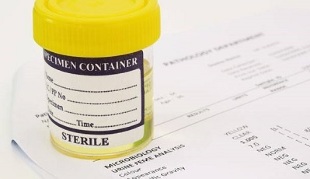If we transfer the concept of the Achilles heel to the sexual sphere of the representatives of the strong half of humanity, then the prostate gland will play its role. A form of acute or chronic inflammation is always a threat to health, and the causes of prostatitis in men are so different that it is not easy to treat the disease. Even with advances in medicine, urogenital pathology remains one of the most common, and the disease is "younger. "To properly diagnose it, you need to know what causes prostatitis.
What is prostatitis
The term used to denote an exclusive male ailment is based on two concepts: prostate (Latin for "prostate") and es (from Latin for "inflammation"). Prostatitis is an andrological pathology in the form of an inflammatory process that occurs in the area of the prostate gland. For various reasons, the "second heart" in the male body fails to cope with its functions, threatening the appearance of unpleasant phenomena such as suppuration, loss of libido, impaired ejaculation, infertility.
What causes prostatitis in men?

Age is not included in the list of factors that cause the appearance of pathology in man. Actual statistics are unknown, and the recorded cases, taking into account the correct diagnosis, indicate that around 35% of young men aged 30-40 years face such a diagnosis.
Other causes of prostatitis in young and mature men are considered more important and threatening:
- infections (genitourinary, sexually transmitted infections) or tonsillitis;
- sedentary lifestyle;
- circulatory disorders (stagnation of venous blood);
- interrupted intercourse;
- prolonged abstinence;
- hypothermia;
- hormonal imbalance;
- constipation;
- overeating;
- constant stress.
In young men
Extremely active sexual activity, as well as prolonged abstinence or irregular sex, can cause prostatitis in young men. The course of urological pathology in them is characteristic in acute form, and the most common cause is a sexually transmitted infection. Gonorrhea, trichomoniasis, and chlamydia cause acute prostatitis in young men, superimposing possible structural abnormalities of prostate tissue.
Causes of chronic prostatitis in men
If bacteria and other pathogens of infectious inflammation can provoke the appearance of an acute form of urological pathology, then other factors can cause chronic diseases. The danger of this variant of prostatitis lies in the long and often asymptomatic course of the disease. It is not possible to identify the characteristic signs immediately and, since the disease periodically worsens, men prefer not to contact a specialist. The inflammatory process continues to develop and the following factors can contribute to the development of chronic prostatitis:
- lifting weights with a full bladder;
- anatomical disorders;
- lesions;
- bacterial infection of other organs.
Causes of the acute form

When an infection enters the body through the external genitalia, the result of the activity of the bacteria is inflammation of the prostate tissue. The acute process is clinically pronounced, therefore, with the diagnosis of prostatitis in men, problems rarely arise.
To avoid unpleasant sensations that can affect potency, it is useful to know the main causes of acute prostatitis in men, including the following:
- infectious agents (streptococci, staphylococci, Trichomonas, chlamydia, Escherichia coli);
- promiscuity in sexual relationships;
- using a urethral catheter;
- instrumental intervention when examining the urethra area;
- hypothermia;
- congestion, circulatory disorders.
Infectious inflammations
By their nature, the causes of prostatitis in men are different and the most common is the action of pathogens. One type of bacteria can provoke the development of pathology after sexual intercourse, while the other can contribute to the appearance of urethritis, pyelonephritis, cystitis. Infectious agents enter the prostate from the urethra or rectum. Prompt examination can reveal the presence of Klebsiella, Enterococci, Trichomonas, and other types of bacteria that cause prostatitis.
Congestion in the prostate
This type of prostatitis is more common in older men, while younger men get sick less often. It is difficult to recognize the pathology, so over time it becomes chronic. The situation is aggravated by the fact that the symptoms of this form of prostatitis in men may be completely absent, and only a burning sensation in the perineum, a slight pain radiating to the inner thigh after along walk may indicate the presence of non-infectious urological pathology. What factors provoke stagnation of venous blood in the small pelvis?

The main causes of prostatitis in men are:
- sedentary work;
- minimal sexual intercourse activity or its termination;
- hypothermia of the pelvic organs, of the whole body;
- hormonal disorders;
- inflammatory processes in the genitourinary system, pelvic organs, rectum;
- varicose veins and other diseases associated with poor outflow of venous blood;
- constipation.
Congenital anomalies can cause stagnation of venous blood and secretions that lead to prostatitis in men. Violation of the structure of the glands can reduce libido or lead to inhibition of sexual activity. The special hormones responsible for the erection are not produced in sufficient quantities, which makes ejaculation difficult. A special secret accumulates in the ducts of the gland, and since ejaculation in a man is disturbed and complete emptying of the ducts does not occur, the phenomenon of stagnation progresses.
Acquired reasons
Urologic disease itself cannot be transmitted. And yet, medical practice shows that there is a risk: during sexual intercourse, infectious agents can enter the tissues, and then bacteria will enter the prostate gland, causing inflammation.
The following factors form a group of acquired causes of prostatitis:
- Perineal trauma, which may be followed by the development of a chronic inflammatory process, damage to the vessels of the prostate or impaired erectile function.
- Narrowing of the urinary canal, leading to impaired urine outflow and increased pressure in the urethra.
- Inflammatory process in the genitourinary system (urethritis), when an infection enters the prostate tissue.
- Prostate stones.
- The negative impact of professional activities.
Prostatitis diagnosis
Only based on the result of a complete examination, a urologist can make a correct diagnosis for a patient. To determine the nature and form of the disease, the doctor will take a history, conduct a general and urological examination. To understand the clinical picture and what can cause unpleasant symptoms, a specialist will perform a rectal examination of the prostate, a painful but extremely necessary procedure.

With regular visits to a urologist, some diagnostic procedures can be avoided.
The main complex of studies, which makes it possible to diagnose prostatitis in men, involves the following activities:
- general urinalysis;
- analysis of prostate secretion;
- ejaculation exam;
- urethral swab;
- Ultrasound of the prostate gland;
- computed tomography of the pelvic organs;
- biopsy.
Prostatitis treatment
A doctor can recommend how to treat urological diseases only after performing diagnostic measures. In order not to cause serious complications or not to delay the treatment of prostatitis, it makes sense for the patient to use the tactics chosen by the specialist, in addition, it is important to follow the recommendations. The method of therapy for prostatitis in men will depend on the nature of the inflammatory process: infectious or non-infectious nature.
The general disease treatment scheme looks like this:
- Antibacterial therapy.The intake of antibiotics from the group of fluoroquinolones with their unique properties tops the list of medications that can complicate and prevent further development of prostatitis in men. Sometimes drugs from the macrolide group can be prescribed and anti-inflammatory (non-steroidal) drugs help relieve pain.
- Physiotherapy.Each method aims to improve blood circulation, for this, procedures such as magnetic and laser therapy, electrophoresis, therapeutic baths are used.
- Massage.This is the most effective post-medication treatment to help control inflammation. When a specialist touches this area, pain cannot be avoided, but massage helps to significantly speed up recovery, remove pus, and enhance the effect of antibiotics.
- Immunomodulatory therapy.Measures and funds aimed at correcting the state of the immune system are necessary for a full recovery. Vitamins, fortifying drugs, help restore immunity, maintain and improve well-being, which is why the force seems to fight an unpleasant disease and the causes of prostatitis.
- Folk remedies, prevention.These instructions are used as an add-on at the stage when it was possible to cope with the main symptoms of prostatitis in men. Herbal teas, candles, and other recipes based on the gifts of nature should be used after consulting a specialist. It is also useful for the patient to review the diet and diet, increase the proportion of natural products, give up alcohol, exercise regularly and avoid nervous overexertion.


























